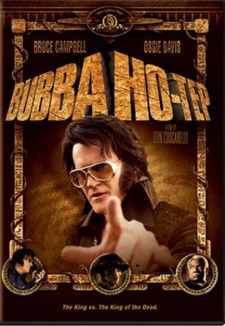The American Religion
It seems I cannot escape the War on Christmas. Maybe because it's the season of giving, or it could be the location in which I live, but all around me people are agitated about the perceived sleight to this national holiday. At a school winter celebration the other day, moms were using it as a rallying cry, not to save their children from the ignoble fate of attending a party in December without actually acknowledging Jesus' birth, but as a stepping-off point for discussions on why teaching creationism in science isn't such a bad idea. While the connection is not lost on me, its implications brought me back here for a rant about going down that slippery slope.
Since I've posted on the subject before, I won't beleaguer the point that the original settlers came here to escape religious persecution, and that as a melting pot of different beliefs and the supposed model of democracy for the world, we owe it to Americans, past and present, to protect the freedoms of the minority in our country from the power of the majority. Yes Virginia, there will always be Christmas in America, the real fear is whether there will always be an America in which to celebrate it.
This essay by Harold Bloom speaks volumes on the subject. Bloom is both a teacher and a student of literature, and while he uses this motif to illustrate his topic, his main subject is the eveningtime of America. Are we nearing the end of the greatest period in our nation's history, inevitably moving backward from the advantages we have enjoyed for two centuries? Bloom points to the cushion of religion and ignorance for this trend. "...American people seem benumbed, unable to read, think, or remember, and thus fit subjects for a president who shares their limitations." Moral conservatives choose to believe rather than think.
Bloom wonders, "Sometimes I find myself wondering if the south belatedly has won the civil war, more than a century after its supposed defeat. The leaders of the Republican party are southern; even the Bushes, despite their Yale and Connecticut tradition, were careful to become Texans and Floridians. Politics, in the United States, perhaps never again can be separated from religion. When so many vote against their own palpable economic interests, and choose "values" instead, then an American malaise has replaced the American dream."
Worse, Bloom points out, is the inconsistency and moral backruptcy of American religion, "There is now a parody of the American Jesus, a kind of Republican CEO who disapproves of taxes, and who has widened the needle's eye so that camels and the wealthy pass readily into the Kingdom of Heaven. We have also an American holy spirit, the comforter of our burgeoning poor, who don't bother to vote. The American trinity pragmatically is completed by an imperial warrior God, trampling with shock and awe."
Wielding the sword of power in America today is the religious right. In the quest for sovereignty they endanger the education our children receive, the civil liberties we have always enjoyed, and the very notion of what it is to be free. Bloom quotes Huey Long, ironclad leader of Louisana politics from 1928-35, "Of course we have fascism in America only we call it democracy." Long might have been before his time philosophically speaking, for it is today that religious conservatives reframe the meaning of liberalism to equate to fascism. Newspeak makes all things possible.
To the parents who suggested teaching evolution in science class, I suggested a sermon on Darwin for their next Sunday service. No one was amused; my children may miss a lot of birthday parties. But they will know about evolution, and democracy, and the right to choose for themselves what it means to be free. Sad to say, it may not be in America


<< Home